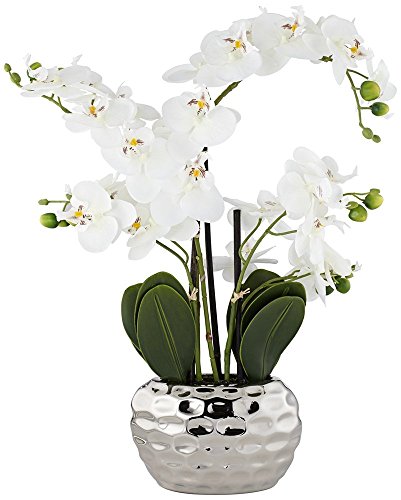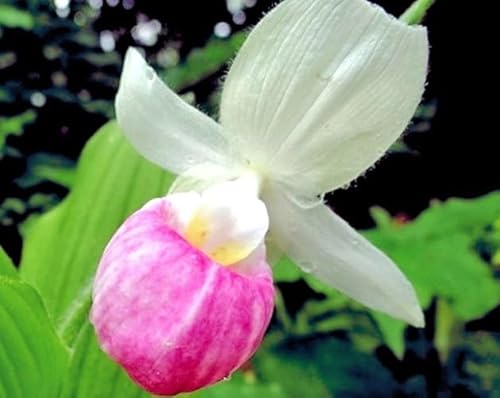Hello,
I know nothing about phals (or 'gutter orchids' as I call them), but I have 2 that remain from my wedding 2 years ago that I am sentimentally attached to. I got 20 white ones from a local nursery that didn't come with tags. I sit them next to my paphs under lights and they seem to be doing well. They came in sphag so I have been repotting them in that once a year. I do have a few questions about them though.
Do these things every put out new fans like slippers do? This thing has just grown upward:

It has always bloomed/rebloomed on one spike at a time, but right now it is reblooming on one spike and seems to be putting out a second one. Does this happen on most mass produced phals as they get larger?

What should I do about the aerial roots? So far I've been leaving them alone because they look interesting.

The second phal that I kept almost died right after the wedding from what seemed like a pretty bad fungal infection. It seems to have bounced back since then and root growth is good. During the infection the emerging leaf died back and since then there has been no sign of new leaf growth. Will this plant ever recover to the point where it will bloom again?

Thanks!
--Stephen
I know nothing about phals (or 'gutter orchids' as I call them), but I have 2 that remain from my wedding 2 years ago that I am sentimentally attached to. I got 20 white ones from a local nursery that didn't come with tags. I sit them next to my paphs under lights and they seem to be doing well. They came in sphag so I have been repotting them in that once a year. I do have a few questions about them though.
Do these things every put out new fans like slippers do? This thing has just grown upward:

It has always bloomed/rebloomed on one spike at a time, but right now it is reblooming on one spike and seems to be putting out a second one. Does this happen on most mass produced phals as they get larger?

What should I do about the aerial roots? So far I've been leaving them alone because they look interesting.

The second phal that I kept almost died right after the wedding from what seemed like a pretty bad fungal infection. It seems to have bounced back since then and root growth is good. During the infection the emerging leaf died back and since then there has been no sign of new leaf growth. Will this plant ever recover to the point where it will bloom again?

Thanks!
--Stephen















































